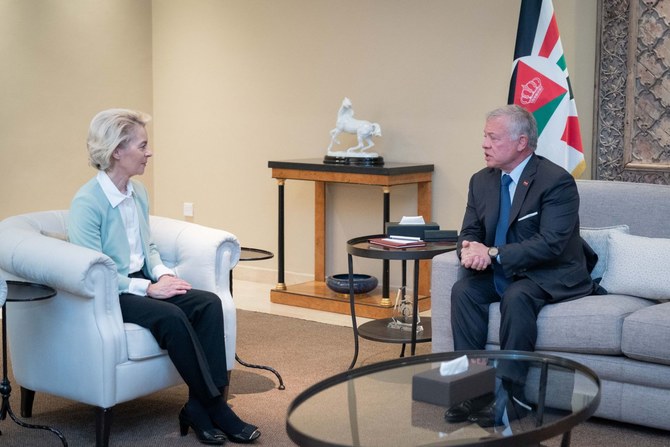ALEPPO: Moussa Hajj Khalil is among many Syrians rebuilding their homes from the rubble of the historic and economically important city of Aleppo, as Syria’s new leaders struggle to kick-start large-scale reconstruction efforts.
Aleppo, Syria’s second largest city and a UNESCO World Heritage site, was deeply scarred by more than a decade of war between government and rebel forces, suffering battles, a siege, Russian air strikes and barrel bomb attacks.
Now, its people are trying to restore their lives with their own means, unwilling to wait and see if the efforts of Syria’s new Islamist-led government to secure international funding come to fruition.
“Nobody is helping us, no states, no organizations,” said Khalil, 65, who spent seven years in a displacement camp in Al-Haramain on the Syrian-Turkish border.
Impoverished residents have “come and tried to restore a room to stay in with their children, which is better than life in camps,” he said, as he observed workers repairing his destroyed home in Ratyan, a suburb in northwestern Aleppo.
Khalil returned alone a month ago to rebuild the house so he can bring his family back from the camp.
Aleppo was the first major city seized by the rebels when they launched an offensive to topple then-leader Bashar Assad in late November.
Assad was ousted less than two weeks later, ending a 14-year war that killed hundreds of thousands, displaced millions and left much of Syria in ruins.
’Doing what we can’
While Syria lobbies for sanctions relief, the grassroots reconstruction drive is gaining momentum and providing work opportunities.
Contractors labor around the clock to meet the growing demand, salvaging materials like broken blocks and cement found between the rubble to repair homes.
“There is building activity now. We are working lots, thank God!” Syrian contractor Maher Rajoub said.
But the scale of the task is huge.
The United Nations Development Programme is hoping to deliver $1.3 billion over three years to support Syria, including by rebuilding infrastructure, its assistant secretary-general told Reuters earlier this month.
Other financial institutions and Gulf countries like Qatar have made pledges to help Syria, but are hampered by US sanctions.
The United States and other Western countries have set conditions for lifting sanctions, insisting that Syria’s new rulers, led by a faction formerly affiliated to Al-Qaeda, demonstrate a commitment to peaceful and inclusive rule.
A temporary suspension of some US sanctions to encourage aid has had limited effect, leaving Aleppo’s residents largely fending for themselves.
“We lived in the camps under the sun and the heat,” said Mustafa Marouch, a 50-year-old vegetable shop owner. “We returned and are doing what we can to fix our situation.”




























